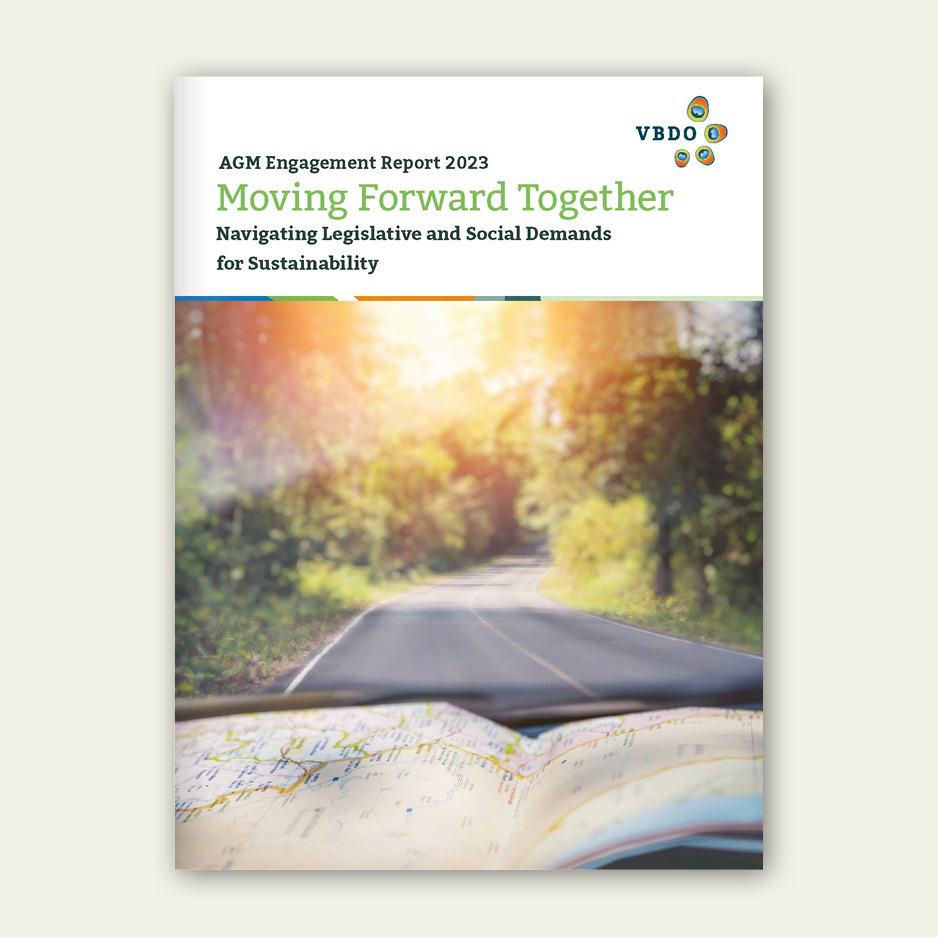VBDO (Dutch Association of Investors for Sustainable Development) today unveiled the key findings of its annual general meeting (AGM) engagement report. The report sheds light on crucial insights gained through VBDO’s engagement activities with 33 Dutch-listed companies on biodiversity. It also identifies areas where companies have shown progress and areas that require significant improvement.
Biodiversity is in rapid decline. According to the 2019 IPBES Global Assessment Report, faster than ever in our history. The average number of native species in land-based habitats has dropped at least 20% since 1900. More than 41,000 animals are on IUCN Red List of Threatened Species, being almost extinct. Almost all companies have a dependency as well as a certain impact on biodiversity, albeit through their own activities or those of their supply chain.
Companies lack a comprehensive biodiversity strategy
While nine out of ten of the companies organize activities to reduce their negative impact on biodiversity, few recognized it as a material topic, the report states. VBDO director Angélique Laskewitz emphasizes the need for companies to strengthen their efforts: ‘incidental activities to counter biodiversity loss will not suffice. Companies need to develop comprehensive biodiversity strategies, supported by risk and dependency assessments.’
An exception to the rule are financial institutions. All the institutions in scope have incorporated biodiversity in their reporting and for the most part, they identified key biodiversity-related risks. Financials also tend to collaborate with peers to enhance nature-related financial disclosures. Laskewitz hastens to add: ‘Although institutions are doing well on paper, we encourage them to do just as well in practice.’
Leading companies in biodiversity
‘A few companies are showing us the way forward’, Laskewitz tells us. ‘Many of the drivers behind biodiversity loss such as habitat conversion and destruction find their origin in business operations. Companies like a.s.r., Corbion and JDE Peet’s are taking this subject seriously. They’re making real progress.’
Another one of these leaders is Heijmans. The construction company developed the “Nature Ladder” a tool developed to realize targets for nature-inclusive and climate-conscious construction. At their Annual General Meeting, CEO Ton Hillen stated that the Nature Ladder will likely become as important as Heijmans’ Safety Ladder, outlining the gravity of the subject for the company.
The call for existentially needed change
The report shows there’s progress to be seen. 90% of all engaged companies in the Industry, Technology & Electronics, and Food, Beverage & Retail sectors have already undertaken measures that reduce their negative impact on biodiversity, compared to 76% last year. Also, three more companies are currently setting comprehensive targets on the topic of biodiversity. Still a little under one-third of the companies in total.
Laskewitz emphasizes the need for a faster and more profound change in company behaviour: ‘Change is slow but certain. Which is good, or at least better than no progress. But there’s a long way to go. Make no mistake, if companies aren’t willing to address this problem, let alone change, it’s not just their own existence that’s on the line. It’s all of ours.’
Other than biodiversity, VBDO’s AGM engagement report also provides detailed recommendations for companies on labour conditions in the supply chain and lobbying. The report also includes a comprehensive list of company commitments, showcasing the progress made by participating companies.
AGM Engagement report 2024
You can freely download the AGM engagement report 2024 – From Compliance to Leadership.

